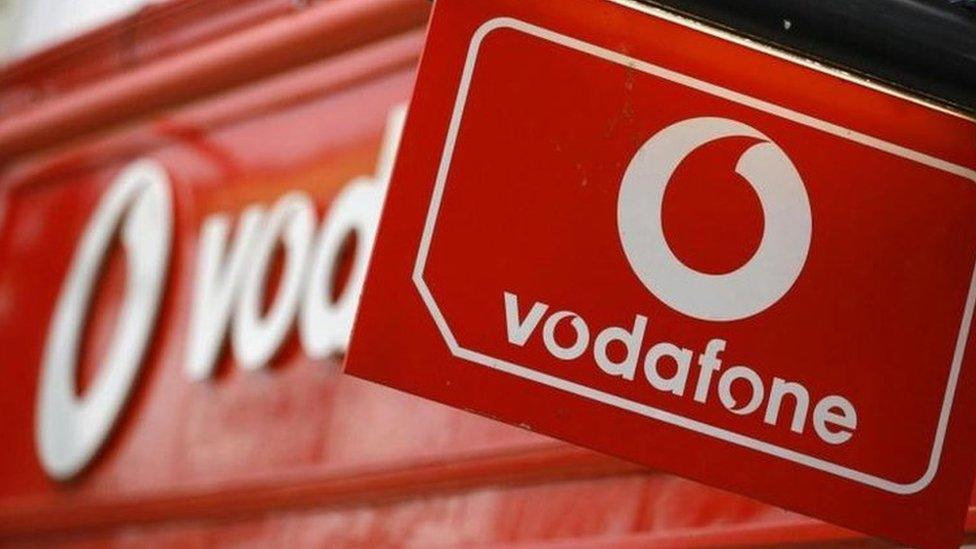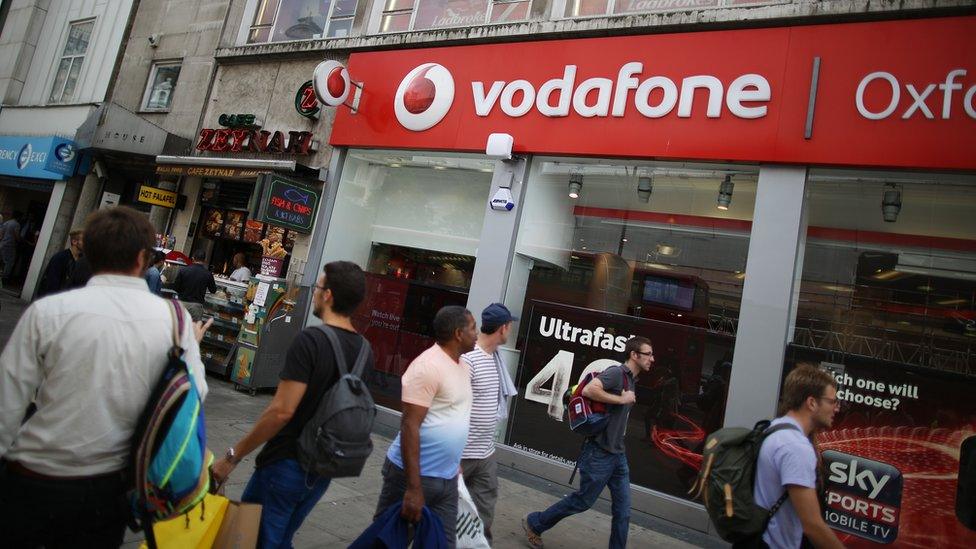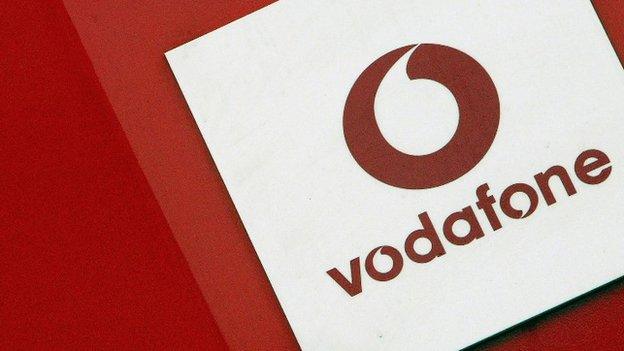Europe helps Vodafone grow for first time since 2008
- Published

Mobile phone giant Vodafone has said its underlying business is now growing for the first time since 2008, helped by a revival in Europe.
Full-year earnings, external for the group grew 2.7% to £11.6bn, and it increased its dividend payout to shareholders by 2%.
Its European business grew for the first time in six years in the first three months of 2016.
European revenues rose to £6.3bn in the quarter, growing 0.5% on an underlying basis.
This helped Vodafone to report a 2.3% increase in underlying total sales to £40.97bn for the full financial year.
The company's three-year £20bn Project Spring means its 4G infrastructure now covers 87% of its European business.
But its real growth is still coming from emerging markets where sales grew almost 7% through the whole year.
Vittorio Colao, Vodafone's group chief executive, said: "This has been a year of strong execution for the group, returning to organic growth... for the first time since 2008.
"We achieved the first quarter of positive revenue growth in Europe since December 2010."
Data investment
Vodafone's business is moving from traditional mobile voice and data services to embrace what it calls total communications, including the internet of things and the Cloud. The company's data business grew 71% over the year.
But investing in new infrastructure across Europe has helped push up Vodafone's debt burden 31% to £29.2bn.
Steve Clayton, head of equity research at Hargreaves Lansdown, said: "Vodafone's efforts are still not really translating into revenue growth. Project Spring came and went, with billions invested, but precious little evidence has so far emerged of revenues growing as a result.
"But it is not all bad news, Vodafone continues to pay a strong dividend and had investors reinvested those dividends over the last 10 years, they would have enjoyed a double digit annual return on their investment.
"Looking forward, the company is now carrying a lot of debt, but it remains committed to an annual dividend increase."
- Published16 February 2016

- Published15 April 2016

- Published30 March 2016
